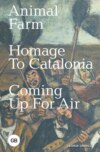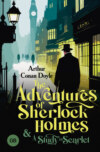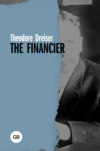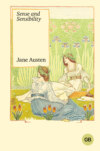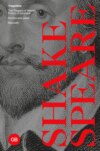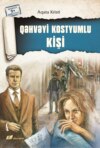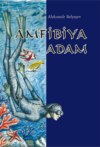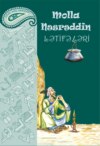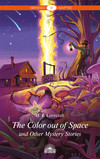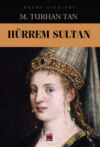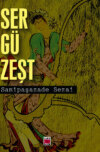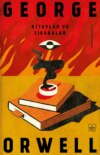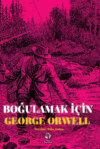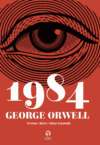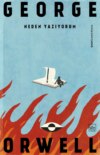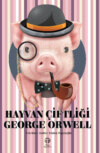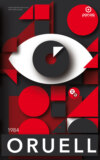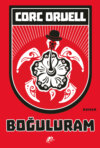Kitabı oku: «Animal Farm. Homage to Catalonia. Coming Up for Air / Скотный двор. Памяти Каталонии. Глотнуть воздуха», sayfa 8
Afterwards we learned that the action had been a success, as such things go. It was merely a raid to make the Fascists divert troops from the other side of Huesca, where the Anarchists were attacking again. I had judged that the Fascists had thrown a hundred or two hundred men into the counter-attack, but a deserter told us later on that it was six hundred. I dare say he was lying-deserters, for obvious reasons, often try to curry favour. It was a great pity about the telescope. The thought of losing that beautiful bit of loot worries me even now.
Chapter Eight
THE days grew hotter and even the nights grew tolerably warm. On a bullet-chipped tree in front of our parapet thick clusters of cherries were forming. Bathing in the river ceased to be an agony and became almost a pleasure. Wild roses with pink blooms the size of saucers straggled over the shell-holes round Torre Fabian. Behind the line you met peasants wearing wild roses over their ears. In the evenings they used to go out with green nets, hunting quails. You spread the net over the tops of the grasses and then lay down and made a noise like a female quail. Any male quail that was within hearing then came running towards you, and when he was underneath the net you threw a stone to scare him, whereupon he sprang into the air and was entangled in the net. Apparently only male quails were caught, which struck me as unfair.
There was a section of Andalusians next to us in the line now. I do not know quite how they got to this front. The current explanation was that they had run away from Malaga so fast that they had forgotten to stop at Valencia; but this, of course, came from the Catalans, who professed to look down on the Andalusians as a race of semi-savages. Certainly the Andalusians were very ignorant. Few if any of them could read, and they seemed not even to know the one thing that everybody knows in Spain-which political party they belonged to. They thought they were Anarchists, but were not quite certain; perhaps they were Communists. They were gnarled, rustic-looking men, shepherds or labourers from the olive groves, perhaps, with faces deeply stained by the ferocious suns of farther south. They were very useful to us, for they had an extraordinary dexterity at rolling the dried-up Spanish tobacco into cigarettes. The issue of cigarettes had ceased, but in Monflorite it was occasionally possible to buy packets of the cheapest kind of tobacco, which in appearance and texture was very like chopped chaff. Its flavour was not bad, but it was so dry that even when you had succeeded in making a cigarette the tobacco promptly fell out and left an empty cylinder. The Andalusians, however, could roll admirable cigarettes and had a special technique for tucking the ends in.
Two Englishmen were laid low by sunstroke. My salient memories of that time are the heat of the midday sun, and working half-naked with sand-bags punishing one’s shoulders which were already flayed by the sun; and the lousiness of our clothes and boots, which were literally dropping to pieces; and the struggles with the mule which brought our rations and which did not mind rifle-fire but took to flight when shrapnel burst in the air; and the mosquitoes (just beginning to be active) and the rats, which were a public nuisance and would even devour leather belts and cartridge-pouches. Nothing was happening except an occasional casualty from a sniper’s bullet and the sporadic artillery-fire and air-raids on Huesca. Now that the trees were in full leaf we had constructed snipers’ platforms, like machans, in the poplar trees that fringed the line. On the other side of Huesca the attacks were petering out. The Anarchists had had heavy losses and had not succeeded in completely cutting the Jaca road. They had managed to establish themselves close enough on either side to bring the road itself under machine-gun fire and make it impassable for traffic; but the gap was a kilometre wide and the Fascists had constructed a sunken road, a sort of enormous trench, along which a certain number of lorries could come and go. Deserters reported that in Huesca there were plenty of munitions and very little food. But the town was evidently not going to fall. Probably it would have been impossible to take it with the fifteen thousand ill-armed men who were available. Later, in June, the Government brought troops from the Madrid front and concentrated thirty thousand men on Huesca, with an enormous quantity of aeroplanes, but still the town did not fall.
When we went on leave I had been a hundred and fifteen days in the line, and at the time this period seemed to me to have been one of the most futile of my whole life. I had joined the militia in order to fight against Fascism, and as yet I had scarcely fought at all, had merely existed as a sort of passive object, doing nothing in return for my rations except to suffer from cold and lack of sleep. Perhaps that is the fate of most soldiers in most wars. But now that I can see this period in perspective I do not altogether regret it. I wish, indeed, that I could have served the Spanish Government a little more effectively; but from a personal point of view-from the point of view of my own development-those first three or four months that I spent in the line were less futile than I then thought. They formed a kind of interregnum in my life, quite different from anything that had gone before and perhaps from anything that is to come, and they taught me things that I could not have learned in any other way.
The essential point is that all this time I had been isolated-for at the front one was almost completely isolated from the outside world: even of what was happening in Barcelona one had only a dim conception-among people who could roughly but not too inaccurately be described as revolutionaries. This was the result of the militia-system, which on the Aragon front was not radically altered till about June 1937. The workers’ militias, based on the trade unions and each composed of people of approximately the same political opinions, had the effect of canalizing into one place all the most revolutionary sentiment in the country. I had dropped more or less by chance into the only community of any size in Western Europe where political consciousness and disbelief in capitalism were more normal than their opposites. Up here in Aragon one was among tens of thousands of people, mainly though not entirely of working-class origin, all living at the same level and mingling on terms of equality. In theory it was perfect equality, and even in practice it was not far from it. There is a sense in which it would be true to say that one was experiencing a foretaste of Socialism, by which I mean that the prevailing mental atmosphere was that of Socialism. Many of the normal motives of civilized life-snobbishness, money-grubbing, fear of the boss, etc.-had simply ceased to exist. The ordinary class-division of society had disappeared to an extent that is almost unthinkable in the money-tainted air of England; there was no one there except the peasants and ourselves, and no one owned anyone else as his master. Of course such a state of affairs could not last. It was simply a temporary and local phase in an enormous game that is being played over the whole surface of the earth. But it lasted long enough to have its effect upon anyone who experienced it. However much one cursed at the time, one realized afterwards that one had been in contact with something strange and valuable. One had been in a community where hope was more normal than apathy or cynicism, where the word ‘comrade’ stood for comradeship and not, as in most countries, for humbug. One had breathed the air of equality. I am well aware that it is now the fashion to deny that Socialism has anything to do with equality. In every country in the world a huge tribe of party-hacks and sleek little professors are busy ‘proving’ that Socialism means no more than a planned state-capitalism with the grab-motive left intact. But fortunately there also exists a vision of Socialism quite different from this. The thing that attracts ordinary men to Socialism and makes them willing to risk their skins for it, the ‘mystique’ of Socialism, is the idea of equality; to the vast majority of people Socialism means a classless society, or it means nothing at all. And it was here that those few months in the militia were valuable to me. For the Spanish militias, while they lasted, were a sort of microcosm of a classless society. In that community where no one was on the make, where there was a shortage of everything but no privilege and no boot-licking, one got, perhaps, a crude forecast of what the opening stages of Socialism might be like. And, after all, instead of disillusioning me it deeply attracted me. The effect was to make my desire to see Socialism established much more actual than it had been before. Partly, perhaps, this was due to the good luck of being among Spaniards, who, with their innate decency and their ever-present Anarchist tinge, would make even the opening stages of Socialism tolerable if they had the chance.
Of course at the time I was hardly conscious of the changes that were occurring in my own mind. Like everyone about me I was chiefly conscious of boredom, heat, cold, dirt, lice, privation, and occasional danger. It is quite different now. This period which then seemed so futile and eventless is now of great importance to me. It is so different from the rest of my life that already it has taken on the magic quality which, as a rule, belongs only to memories that are years old. It was beastly while it was happening, but it is a good patch for my mind to browse upon. I wish I could convey to you the atmosphere of that time. I hope I have done so, a little, in the earlier chapters of this book. It is all bound up in my mind with the winter cold, the ragged uniforms of militiamen, the oval Spanish faces, the morse-like tapping of machine-guns, the smells of urine and rotting bread, the tinny taste of bean-stews wolfed hurriedly out of unclean pannikins.
The whole period stays by me with curious vividness. In my memory I live over incidents that might seem too petty to be worth recalling. I am in the dug-out at Monte Pocero again, on the ledge of limestone that serves as a bed, and young Ram6n is snoring with his nose flattened between my shoulder-blades. I am stumbling up the mucky trench, through the mist that swirls round me like cold steam. I am half-way up a crack in the mountain-side, struggling to keep my balance and to tug a root of wild rosemary out of the ground. High overhead some meaningless bullets are singing.
I am lying hidden among small fir-trees on the low ground west of Monte Oscuro, with Kopp and Bob Edwards and three Spaniards. Up the naked grey hill to the right of us a string of Fascists are climbing like ants. Close in front a bugle-call rings out from the Fascist lines. Kopp catches my eye and, with a schoolboy gesture, thumbs his nose at the sound.
I am in the mucky yard at La Granja, among the mob of men who are struggling with their tin pannikins round the cauldron of stew. The fat and harassed cook is warding them off with the ladle. At a table nearby a bearded man with a huge automatic pistol strapped to his belt is hewing loaves of bread into five pieces. Behind me a Cockney voice (Bill Chambers, with whom I quarrelled bitterly and who was afterwards killed outside Huesca) is singing:
There are rats, rats, Rats as big as cats, In the…
A shell comes screaming over. Children of fifteen fling themselves on their faces. The cook dodges behind the cauldron. Everyone rises with a sheepish expression as the shell plunges and booms a hundred yards away.
I am walking up and down the line of sentries, under the dark boughs of the poplars. In the flooded ditch outside the rats are paddling about, making as much noise as otters. As the yellow dawn comes up behind us, the Andalusian sentry, mufHed in his cloak, begins singing. Across no man’s land, a hundred or two hundred yards away, you can hear the Fascist sentry also singing.
On 25 April, after the usual mananas, another section relieved us and we handed over our rifles, packed our kits, and marched back to Monflorite. I was not sorry to leave the line. The lice were multiplying in my trousers far faster than I could massacre them, and for a month past I had had no socks and my boots had very little sole left, so that I was walking more or less barefoot. I wanted a hot bath, clean clothes, and a night between sheets more passionately than it is possible to want anything when one has been living a normal civilized life. We slept a few hours in a barn in Monflorite, jumped a lorry in the small hours, caught the five o’clock train at Barbastro, and-having the luck to connect with a fast train at Lerida-were in Barcelona by three o’clock in the afternoon of the 26th. And after that the trouble began.
Chapter Nine
FROM Mandalay, in Upper Burma, you can travel by train to Maymyo, the principal hill-station of the province, on the edge of the Shan plateau. It is rather a queer experience. You start off in the typical atmosphere of an eastern city-the scorching sunlight, the dusty palms, the smells of fish and spices and garlic, the squashy tropical fruits, the swarming dark-faced human beings-and because you are so used to it you carry this atmosphere intact, so to speak, in your railway carriage. Mentally you are still in Mandalay when the train stops at Maymyo, four thousand feet above sea-level. But in stepping out of the carriage you step into a different hemisphere. Suddenly you are breathing cool sweet air that might be that of England, and all round you are green grass, bracken, fir-trees, and hill-women with pink cheeks selling baskets of strawberries.
Getting back to Barcelona, after three and a half months at the front, reminded me of this. There was the same abrupt and startling change of atmosphere. In the train, all the way to Barcelona, the atmosphere of the front persisted; the dirt, the noise, the discomfort, the ragged clothes the feeling of privation, comradeship, and equality. The train, already full of militiamen when it left Barbastro, was invaded by more and more peasants at every station on the line; peasants with bundles of vegetables, with terrified fowls which they carried head-downwards, with sacks which looped and writhed all over the floor and were discovered to be full of live rabbits-finally with a quite considerable flock of sheep which were driven into the compartments and wedged into every empty space. The militiamen shouted revolutionary songs which drowned the rattle of the train and kissed their hands or waved red and black handkerchiefs to every pretty girl along the line. Bottles of wine and of anis, the filthy Aragonese liqueur, travelled from hand to hand. With the Spanish goat-skin water-bottles you can squirt a jet of wine right across a railway carriage into your friend’s mouth, which saves a lot of trouble. Next to me a black-eyed boy of fifteen was recounting sensational and, I do not doubt, completely untrue stories of his own exploits at the front to two old leather-faced peasants who listened open-mouthed. Presently the peasants undid their bundles and gave us some sticky dark-red wine. Everyone was profoundly happy, more happy than I can convey. But when the train had rolled through Sabadell and into Barcelona, we stepped into an atmosphere that was scarcely less alien and hostile to us and our kind than if this had been Paris or London.
Everyone who has made two visits, at intervals of months, to Barcelona during the war has remarked upon the extraordinary changes that took place in it. And curiously enough, whether they went there first in August and again in January, or, like myself, first in December and again in April, the thing they said was always the same: that the revolutionary atmosphere had vanished. No doubt to anyone who had been there in August, when the blood was scarcely dry in the streets and militia were quartered in the smart hotels, Barcelona in December would have seemed bourgeois; to me, fresh from England, it was liker to a workers’ city than anything I had conceived possible. Now the tide had rolled back. Once again it was an ordinary city, a little pinched and chipped by war, but with no outward sign of working-class predominance.
The change in the aspect of the crowds was startling. The militia uniform and the blue overalls had almost disappeared; everyone seemed to be wearing the smart summer suits in which Spanish tailors specialize. Fat prosperous men, elegant women, and sleek cars were everywhere. (It appeared that there were still no private cars; nevertheless, anyone who ‘was anyone’ seemed able to command a car.) The officers of the new Popular Army, a type that had scarcely existed when I left Barcelona, swarmed in surprising numbers. The Popular Army was officered at the rate of one officer to ten men. A certain number of these officers had served in the militia and been brought back from the front for technical instruction, but the majority were young men who had gone to the School of War in preference to joining the militia. Their relation to their men was not quite the same as in a bourgeois army, but there was a definite social difference, expressed by the difference of pay and uniform. The men wore a kind of coarse brown overalls, the officers wore an elegant khaki uniform with a tight waist, like a British Army officer’s uniform, only a little more so. I do not suppose that more than one in twenty of them had yet been to the front, but all of them had automatic pistols strapped to their belts; we, at the front, could not get pistols for love or money. As we made our way up the street I noticed that people were staring at our dirty exteriors. Of course, like all men who have been several months in the line, we were a dreadful sight. I was conscious of looking like a scarecrow. My leather jacket was in tatters, my woollen cap had lost its shape and slid perpetually over one eye, my boots consisted of very little beyond splayed-out uppers. All of us were in more or less the same state, and in addition we were dirty and unshaven, so it was no wonder that the people stared. But it dismayed me a little, and brought it home to me that some queer things had been happening in the last three months.
During the next few days I discovered by innumerable signs that my first impression had not been wrong. A deep change had come over the town. There were two facts that were the keynote of all else. One was that the people-the civil population-had lost much of their interest in the war; the other was that the normal division of society into rich and poor, upper class and lower class, was reasserting itself.
The general indifference to the war was surprising and rather disgusting. It horrified people who came to Barcelona from Madrid or even from Valencia. Partly it was due to the remoteness of Barcelona from the actual fighting; I noticed the same thing a month later in Tarragona, where the ordinary life of a smart seaside town was continuing almost undisturbed. But it was significant that all over Spain voluntary enlistment had dwindled from about January onwards. In Catalonia, in February, there had been a wave of enthusiasm over the first big drive for the Popular Army, but it had not led to any great increase in recruiting. The war was only six months old or thereabouts when the Spanish Government had to resort to conscription, which would be natural in a foreign war, but seems anomalous in a civil war. Undoubtedly it was bound up with the disappointment of the revolutionary hopes with which the war had started. The trade union members who formed themselves into militias and chased the Fascists back to Zaragoza in the first few weeks of war had done so largely because they believed themselves to be fighting for working-class control; but it was becoming more and more obvious that working-class control was a lost cause, and the common people, especially the town proletariat, who have to fill the ranks in any war, civil or foreign, could not be blamed for a certain apathy. Nobody wanted to lose the war, but the majority were chiefly anxious for it to be over. You noticed this wherever you went. Everywhere you met with the same perfunctory remark:’ This war-terrible, isn’t it? When is it going to end?’ Politically conscious people were far more aware of the internecine struggle between Anarchist and Communist than of the fight against Franco. To the mass of the people the food shortage was the most important thing. ‘The front’ had come to be thought of as a mythical far-off place to which young men disappeared and either did not return or returned after three or four months with vast sums of money in their pockets. (A militiaman usually received his back pay when he went on leave.) Wounded men, even when they were hopping about on crutches, did not receive any special consideration. To be in the militia was no longer fashionable. The shops, always the barometers of public taste, showed this clearly. When I first reached Barcelona the shops, poor and shabby though they were, had specialized in militiamen’s equipment. Forage-caps, zipper jackets, Sam Browne belts, hunting-knives, water-bottles, revolver-holsters were displayed in every window. Now the shops were markedly smarter, but the war had been thrust into the background. As I discovered later, when buying my kit before going back to the front, certain things that one badly needed at the front were very difficult to procure.
Meanwhile there was going on a systematic propaganda against the party militias and in favour of the Popular Army. The position here was rather curious. Since February the entire armed forces had theoretically been incorporated in the Popular Army, and the militias were, on paper, reconstructed along Popular Army lines, with differential pay-rates, gazetted rank, etc., etc. The divisions were made up of ‘mixed brigades’, which were supposed to consist partly of Popular Army troops and partly of militia. But the only changes that had actually taken place were changes of name. The P.O.U.M. troops, for instance, previously called the Lenin Division, were now known as the 29th Division. Until June very few Popular Army troops reached the Aragon front, and in consequence the militias were able to retain their separate structure and their special character. But on every wall the Government agents had stencilled: ‘We need a Popular Army’, and over the radio and in the Communist Press there was a ceaseless and sometimes very malignant jibing against the militias, who were described as ill-trained, undisciplined, etc., etc.; the Popular Army was always described as ‘heroic’. From much of this propaganda you would have derived the impression that there was something disgraceful in having gone to the front voluntarily and something praiseworthy in waiting to be conscripted. For the time being, however, the militias were holding the line while the Popular Army was training in the rear, and this fact had to be advertised as little as possible. Drafts of militia returning to the front were no longer marched through the streets with drums beating and flags flying. They were smuggled away by train or lorry at five o’clock in the morning. A few drafts of the Popular Army were now beginning to leave for the front, and these, as before, were marched ceremoniously through the streets; but even they, owing to the general waning of interest in the war, met with comparatively little enthusiasm. The fact that the militia troops were also, on paper. Popular Army troops, was skilfully used in the Press propaganda. Any credit that happened to be going was automatically handed to the Popular Army, while all blame was reserved for the militias. It sometimes happened that the same troops were praised in one capacity and blamed in the other.
But besides all this there was the startling change in the social atmosphere-a thing difficult to conceive unless you have actually experienced it. When I first reached Barcelona I had thought it a town where class distinctions and great differences of wealth hardly existed. Certainly that was what it looked like. ‘Smart’ clothes were an abnormality, nobody cringed or took tips, waiters and flower-women and bootblacks looked you in the eye and called you ‘comrade’. I had not grasped that this was mainly a mixture of hope and camouflage. The working class believed in a revolution that had been begun but never consolidated, and the bourgeoisie were scared and temporarily disguising themselves as workers. In the first months of revolution there must have been many thousands of people who deliberately put on overalls and shouted revolutionary slogans as a way of saving their skins. Now things were returning to normal. The smart restaurants and hotels were full of rich people wolfing expensive meals, while for the working-class population food-prices had jumped enormously without any corresponding rise in wages. Apart from the expensiveness of everything, there were recurrent shortages of this and that, which, of course, always hit the poor rather than the rich. The restaurants and hotels seemed to have little difficulty in getting whatever they wanted, but in the working-class quarters the queues for bread, olive oil, and other necessaries were hundreds of yards long. Previously in Barcelona I had been struck by the absence of beggars; now there were quantities of them. Outside the delicatessen shop at the top of the Ramblas gangs of barefooted children were always waiting to swarm round anyone who came out and clamour for scraps of food. The ‘revolutionary’ forms of speech were dropping out of use. Strangers seldom addressed you as tu and camarada nowadays; it was usually senor and usted. Buenos dias was beginning to replace salud. The waiters were back in their boiled shirts and the shop-walkers were cringing in the familiar manner. My wife and I went into a hosiery shop on the Ramblas to buy some stockings. The shopman bowed and rubbed his hands as they do not do even in England nowadays, though they used to do it twenty or thirty years ago. In a furtive indirect way the practice of tipping was coming back. The workers’ patrols had been ordered to dissolve and the pre-war police forces were back on the streets. One result of this was that the cabaret show and high-class brothels, many of which had been closed by the workers’ patrols, had promptly reopened 8.8 A small but significant instance of the way in which everything was now orientated in favour of the wealthier classes could be seen in the tobacco shortage. For the mass of the people the shortage of tobacco was so desperate that cigarettes filled with sliced liquorice-root were being sold in the streets. I tried some of these once. (A lot of people tried them once.) Franco held the Canaries, where all the Spanish tobacco is grown; consequently the only stocks of tobacco left on the Government side were those that had been in existence before the war. These were running so low that the tobacconists’ shops only opened once a week; after waiting for a couple of hours in a queue you might, if you were lucky, get a three-quarter-ounce packet of tobacco. Theoretically the Government would not allow tobacco to be purchased from abroad, because this meant reducing the gold-reserves, which had got to be kept for arms and other necessities. Actually there was a steady supply of smuggled foreign cigarettes of the more expensive kinds. Lucky Strikes and so forth, which gave a grand opportunity for profiteering. You could buy the smuggled cigarettes openly in the smart hotels and hardly less openly in the streets, provided that you could pay ten pesetas (a militiaman’s daily wage) for a packet. The smuggling was for the benefit of wealthy people, and was therefore connived at. If you had enough money there was nothing that you could not get in any quantity, with the possible exception of bread, which was rationed fairly strictly. This open contrast of wealth and poverty would have been impossible a few months earlier, when the working class still were or seemed to be in control. But it would not be fair to attribute it solely to the shift of political power. Partly it was a result of the safety of life in Barcelona, where there was little to remind one of the war except an occasional air-raid. Everyone who had been in Madrid said that it was completely different there. In Madrid the common danger forced people of almost all kinds into some sense of comradeship. A fat man eating quails while children are begging for bread is a disgusting sight, but you are less likely to see it when you are within sound of the guns.
A day or two after the street-fighting I remember passing through one of the fashionable streets and coming upon a confectioner’s shop with a window full of pastries and bonbons of the most elegant kinds, at staggering prices. It was the kind of shop you see in Bond Street or the Rue de la Paix. And I remember feeling a vague horror and amazement that money could still be wasted upon such things in a hungry war-stricken country. But God forbid that I should pretend to any personal superiority. After several months of discomfort I had a ravenous desire for decent food and wine, cocktails, American cigarettes, and so forth, and I admit to having wallowed in every luxury that I had money to buy. During that first week, before the street-fighting began, I had several preoccupations which interacted upon one another in a curious way. In the first place, as I have said, I was busy making myself as comfortable as I could. Secondly, thanks to over-eating and over-drinking, I was slightly out of health all that week. I would feel a little unwell, go to bed for half a day, get up and eat another excessive meal, and then feel ill again. At the same time I was making secret negotiations to buy a revolver. I badly wanted a revolver-in trench-fighting much more useful than a rifle-and they were very difficult to get hold of. The Government issued them to policemen and Popular Army officers, but refused to issue them to the militia; you had to buy them, illegally, from the secret stores of the Anarchists. After a lot of fuss and nuisance an Anarchist friend managed to procure me a tiny 26-mm. automatic pistol, a wretched weapon, useless at more than five yards but better than nothing. And besides all this I was making preliminary arrangements to leave the P.O.U.M. militia and enter some other unit that would ensure my being sent to the Madrid front.
